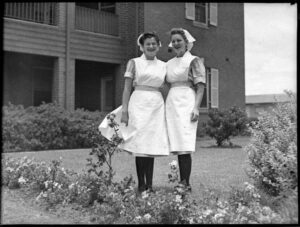“Emerge” is our response to “Emergency.”
Christians have met emergencies for 2000 years.
Why would Christians lead the way in HEALTH CARE?
Watch our Truth in Two to find out (full text and AFTERWORD below).
 Find out more about becoming a Christian APOLOGIST. I would be glad to talk with you about the work of RATIO CHRISTI (here). Subscribe to “Truth in Two” videos from Comenius (here). Mark is President of The Comenius Institute (website). Dr. Eckel spends time with Christian young people in public university (1 minute video), hosts a weekly radio program with diverse groups of guests (1 minute video), and interprets culture from a Christian vantage point (1 minute video). Consider becoming a Comenius patron (here).
Find out more about becoming a Christian APOLOGIST. I would be glad to talk with you about the work of RATIO CHRISTI (here). Subscribe to “Truth in Two” videos from Comenius (here). Mark is President of The Comenius Institute (website). Dr. Eckel spends time with Christian young people in public university (1 minute video), hosts a weekly radio program with diverse groups of guests (1 minute video), and interprets culture from a Christian vantage point (1 minute video). Consider becoming a Comenius patron (here).
Picture Credit: Luke Renoe, Snappy Goat
FULL TEXT: “Emergency” (from my social media platform posts in March 2020)
What are the names of the hospitals in your city? I suspect you’ll find some named “community” or “public” or even “mercy”. Now look again. What other names do you see? If your city is anything like mine you probably have a ‘saint’ or two listed such as Saint Matthew’s, Saint Mark’s, or Saint Luke’s. In my case, my primary care group is called Saint Vincent’s. Hospitals have been named after Christians.
If there is any group known for building hospitals it would be Christians. Since Christianity’s inception, caring for others has been associated with Jesus’ followers. Rodney Stark documents multiple sources in his book The Triumph of Christianity showing, “Christianity provided an island of mercy and security for cities in the Roman empire.”
Christians have played a beneficial role in health care for 2000 years. Meeting needs in times of emergency has been the ethos of the Christian community since the time of its inception in Rome. The First Century word “hospital” came from a word meaning a host who cares for a stranger, a reflection of Christian practice. Christians believe in miracles but also put into action Jesus’ words in Matthew 25, “Whatever you did for the least (or the needy) you did for Me.”
In these days of a new “emergency” at the Comenius Institute we believe the Christian church must “emerge” again as it did in the first century. We intercede with Heaven for public leaders based on 1 Timothy 2. We support care givers from examples in third John. And we “do good” where we live as we are instructed in the book of Titus.
Next time you pass a hospital remember that the Christian community has been known for its care of others since the days of Rome.
For Truth in Two, this is Dr. Mark Eckel, President of the Comenius Institute, personally seeking truth wherever it’s found.
AFTERWORD (from my March 2020 Facebook posting)
EMERGENCY. The word “emerge” took on new meaning in the 17th century. Unforeseen events dictated that people would draw out or up (“e” = “ex”) that which was sinking or plunging beneath the water (“merge”). Centuries later the an acronym “ER” (emergency room) would be used to offer immediate care for those in need.
Meeting needs in times of emergency has been the ethos of the Christian community since the time of its inception in Rome. “Hospitals” (from “hospice” or “hosting,” care for the stranger) had their beginning in 1st century Church practice. Ancient religions called upon gods in times of emergency for supernatural help, hoping for some miraculous intervention. The Christian religion, while obviously believing in the miraculous, put into action the words of Jesus, “Whatever you did for the least (the needy) you did for Me” (Matthew 25:35-40).
In these days of a new “emergency” the Christian church must “emerge” again as it did in its inception. Pray for God’s help (Psalm 6). Intercede with Heaven for public leaders (1 Timothy 2:1-3). Do good to all (Galatians 6:9-10). Care for the needy (Matthew 25:35-40). Support care givers (3 John 2-8, 12). “Do good, do good, do good” (Titus 3:1, 8, 14).
Become familiar with Christian History Magazine and in particular Issue #101 on the emergence of health care in The Church. https://christianhistoryinstitute.org/…/50cf8e35c4ae27.4389…


